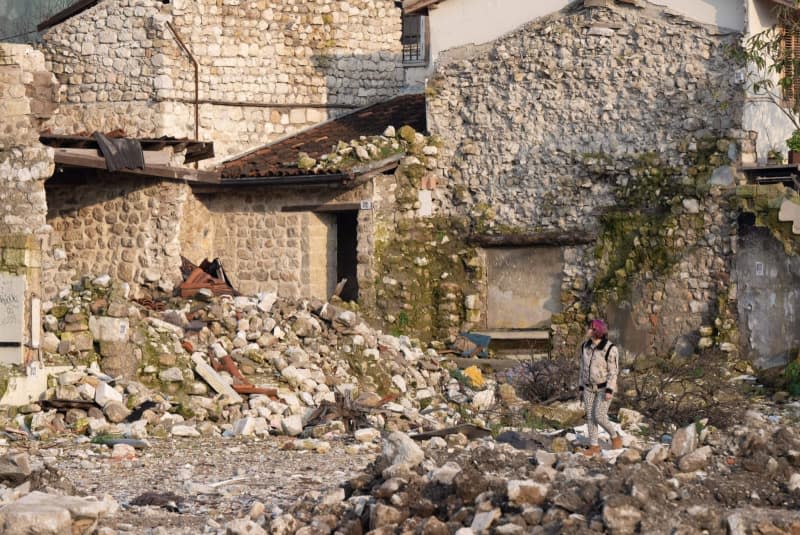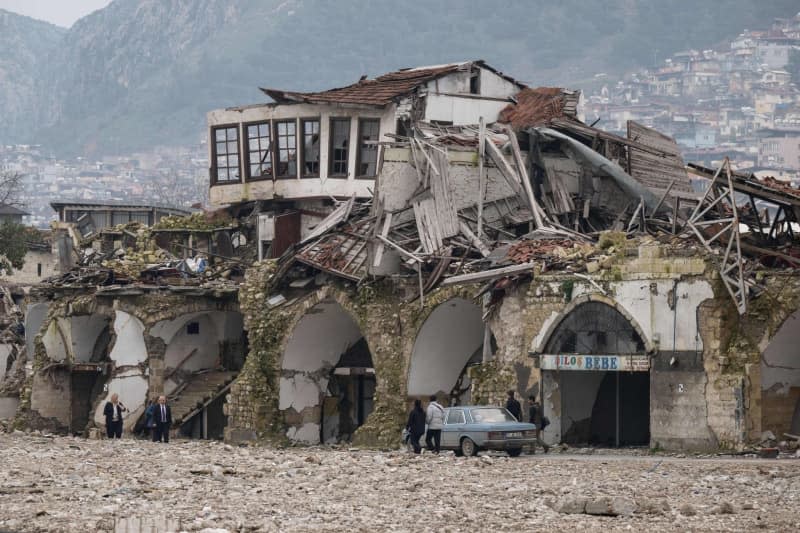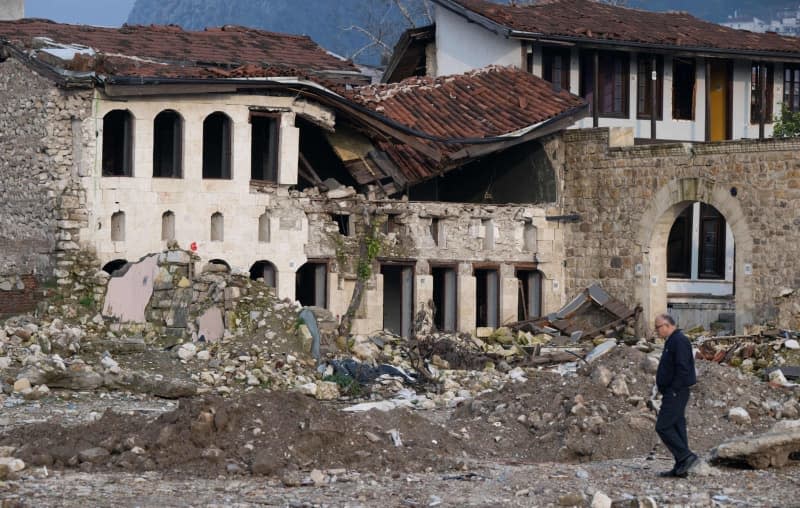UN: Over 3 million lack housing a year after devastating Turkey quake

Turkey needs a faster pace in new household construction for millions of residents left homeless after last year's devastating earthquake, a UN official tells dpa.
"There is a huge population of people who need housing. There's housing coming on stream, but there's really not enough," says the UN Development Programme (UNDP) Resident Representative Louisa Vinton.
The UN estimates that the twin earthquakes in February last year left at least 3.3 million people homeless in south-eastern Turkey.
Decent housing and supporting locals' livelihood remain two urgent needs after one year, Vinton told dpa in an interview on Tuesday.
Some people still live in either tents or in their damaged homes with a tent in the yard, she stressed.
"We will bring the last remaining citizen, whose house was destroyed or deemed unusable, to a safe home,” Turkish President Recep Tayyip Erdoğan reiterated in a pledge on Tuesday.
Erdoğan had promised to build around 300,000 residential buildings for survivors within a year after the quake.
His government, however, missed such goal and now aims to deliver 200,000 residential units by the end of 2024.
Earlier on Tuesday, angry locals in the worst-hit province of Hatay protested government and opposition politicians during a commemoration vigil.
Many complain of what they call slow government response in removing the rubble and constructing new apartments.
The situation in Hatay is “still apocalyptic,” Vinton said on Tuesday, urging authorities for a sustainable infrastructure planning for the long-term.
The efforts should not omit supports to maintain economic activity in the region, she says, adding the UNDP delivered $10 million in grants to individual businesses and entrepreneurs across the 11 Turkish provinces affected.
“The risk is just that people will come to accept lower standards of living and there will be more of an exodus,” Vinton said, noting that even before the quake, the region was underdeveloped compared to western Turkey.
The quakes on February 6, 2023 killed more than 60,000 people in Turkey and neighbouring Syria, according to official and monitor data.
Several Syrian refugees who fled the war at home were caught in the middle of the quake in Turkey.
Muhammed Cemil Deri, 24, and his wife Azize are among them. The couple, who fled Syria's Aleppo to Turkey in 2013, survived the quake at their home in Kahramanmaraş province, the epicentre.
Muhammed's then 1-year-old nephew Hasan Eyyubi was rescued alive from under the rubble after three days. His parents died with his mother, Muhammed's sister, found hugging Hasan. Her body became a shield that protected Hasan from the falling debris.
Hasan survived three surgeries to his damaged hand and is now fine, living with his uncle Muhammed. Muhammed and his sister's son visited her grave on Tuesday.
Having fled the war a decade ago to experience "the horror" elsewhere, and the aftermath of the devastating quake is a psychological burden, Muhammed said over the phone on Tuesday.
He works as a construction worker in central Kahramanmaraş and cites a growing resentment against Syrians. The region suffers from a high unemployment rate.
"People now blame us for taking their jobs. We feel like we are not wanted, especially after the quake has taken so much from this region," Muhammed added.
But he plans to stay.
"We have nowhere else to go."



